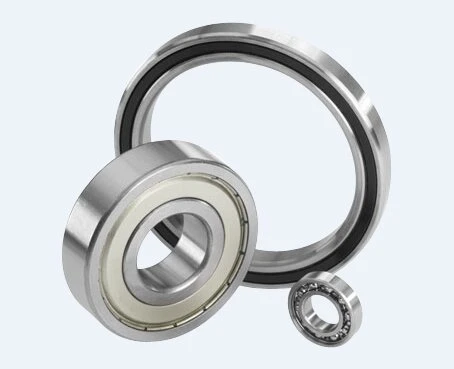
Dec . 13, 2024 22:08 Back to list
deep groove ball bearing advantages and disadvantages
Advantages and Disadvantages of Deep Groove Ball Bearings
Deep groove ball bearings are among the most widely used types of rolling element bearings due to their versatility and adaptability in a variety of applications. From everyday household items to complex industrial machinery, deep groove ball bearings play a crucial role in ensuring smooth and efficient operation. However, like any mechanical component, they come with their own set of advantages and disadvantages.
Advantages of Deep Groove Ball Bearings
1. High Load Capacity One of the most significant advantages of deep groove ball bearings is their ability to withstand both radial and axial loads. This characteristic makes them suitable for applications that require handling heavy loads while maintaining operational stability.
2. Versatility Deep groove ball bearings can be utilized in a diverse range of applications, from electric motors and automotive components to household appliances and machine tools. Their adaptability to various operational conditions and environments enhances their popularity in different industries.
3. Smooth Operation The design of deep groove ball bearings allows for reduced friction, which leads to smoother operation. As a result, they can achieve high rotational speeds with minimal energy loss, making them ideal for high-speed applications.
4. Durability and Longevity Constructed from high-quality materials, deep groove ball bearings are designed to withstand wear and tear over time. Their construction minimizes the risk of premature failure, leading to extended service life and lower maintenance costs.
5. Low Noise Levels When properly lubricated and installed, deep groove ball bearings produce minimal noise during operation. This feature is particularly advantageous in applications where noise reduction is critical, such as in household appliances or high-precision machinery.
6. Ease of Maintenance Deep groove ball bearings typically require minimal maintenance. Regular inspection and proper lubrication are usually sufficient to ensure their optimal performance, making them user-friendly for many applications.
deep groove ball bearing advantages and disadvantages

Disadvantages of Deep Groove Ball Bearings
1. Limited Axial Load Capacity Although deep groove ball bearings can handle axial loads, their capacity is limited compared to other bearing types, such as angular contact ball bearings. In applications where significant axial loads are present, this limitation may be a concern.
2. Sensitivity to Misalignment Deep groove ball bearings are sensitive to misalignment, which can lead to premature wear and reduced performance. Careful alignment during installation and maintenance is essential to ensure their longevity and efficiency.
3. Temperature Sensitivity While deep groove ball bearings can operate across a range of temperatures, extreme heat can lead to lubricant breakdown, resulting in increased friction and potentially damaging the bearing. In high-temperature environments, special materials or lubricants may be necessary to maintain performance.
4. Initial Cost Although deep groove ball bearings are generally cost-effective in the long run due to their durability and low maintenance requirements, their initial purchase cost may be higher than other simpler bearing designs. This factor might deter some manufacturers, especially in budget-sensitive projects.
5. Flow of Contaminants Deep groove ball bearings can be susceptible to contamination from dirt, debris, and moisture. If contaminants enter the bearing, they can cause significant damage over time. Proper sealing methods and maintenance routines are vital to protect bearings from external contaminants.
Conclusion
In summary, deep groove ball bearings offer a plethora of advantages that make them an essential component in various mechanical systems. Their high load capacity, versatility, and durability are considerable benefits that contribute to their widespread use. However, they also have disadvantages, such as limited axial load capacity and sensitivity to misalignment, which need to be considered when selecting bearings for specific applications. By understanding both the advantages and disadvantages of deep groove ball bearings, engineers and manufacturers can make informed decisions that optimize performance and extend the life of their machinery.
Latest news
-
Premium Deep Groove Ball Bearings | High Speed & Reliability
NewsAug.29,2025
-
Durable Scaffolding Clamps - Secure & Reliable Tube Connectors
NewsAug.28,2025
-
Common Failures in Thrust Ball Bearings and Solutions
NewsAug.22,2025
-
How Tapered Roller Bearings Can Take Shock Loads
NewsAug.22,2025
-
Angular Bearings in High-Precision Spindles
NewsAug.22,2025
-
The Impact of Misalignment on Cylindrical Roller Bearing Performance
NewsAug.22,2025
